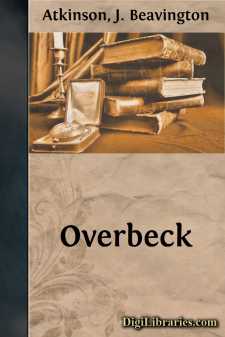Categories
- Antiques & Collectibles 13
- Architecture 36
- Art 48
- Bibles 22
- Biography & Autobiography 813
- Body, Mind & Spirit 142
- Business & Economics 28
- Children's Books 15
- Children's Fiction 12
- Computers 4
- Cooking 94
- Crafts & Hobbies 4
- Drama 346
- Education 46
- Family & Relationships 57
- Fiction 11828
- Games 19
- Gardening 17
- Health & Fitness 34
- History 1377
- House & Home 1
- Humor 147
- Juvenile Fiction 1873
- Juvenile Nonfiction 202
- Language Arts & Disciplines 88
- Law 16
- Literary Collections 686
- Literary Criticism 179
- Mathematics 13
- Medical 41
- Music 40
- Nature 179
- Non-Classifiable 1768
- Performing Arts 7
- Periodicals 1453
- Philosophy 64
- Photography 2
- Poetry 896
- Political Science 203
- Psychology 42
- Reference 154
- Religion 513
- Science 126
- Self-Help 84
- Social Science 81
- Sports & Recreation 34
- Study Aids 3
- Technology & Engineering 59
- Transportation 23
- Travel 463
- True Crime 29
Overbeck
Categories:
Description:
Excerpt
CHAPTER I.
LÜBECK—VIENNA.
JOHANN FRIEDRICH OVERBECK was born, as a tablet on his father's house records, in Lübeck on the 4th of July, 1789. Among his ancestors were Doctors of Law and Evangelical Pastors. His parents were good Protestants; his father was Burgomaster in the ancient city. Seldom has a life been so nicely preordained as that of the young religious painter. The light of his coming did not shine, as commonly supposed, out of surrounding darkness. A visit to his birthââ¬âplace, expressly made for this memoir, soon showed me that Overbeck, from his youth upwards, had been tenderly cared for; that he received a classic education; that his mind was brought under moral and religious discipline; in short, that the rich harvest of later years had found its seedââ¬âtime here within the family home in Lübeck.
The old house in which Overbeck was born has unfortunately, within the last few years, been modernised, but the original medallion relief of the painter's head, lifeââ¬âsize, is built into the new façade, and the former structure can be accurately ascertained as well from the designs of the adjoining tenements as from the living testimony of the neighbours. The Overbeck mansion stood in the König Strasse, a principal thoroughfare in the heart of an old city which may not inaptly be designated the Nuremberg of Northern Germany. It is not difficult here on the spot to picture the life of the painter while yet in his teens. The historic town of Lübeck had enjoyed a signal political, commercial and artistic epoch. As the head of the Hanseatic League, it rose to unexampled prosperity. Deputies from eighty confederate municipalities assembled in the audienceââ¬âchamber of the Rathhaus; fortifications, walls and gateways were reared for defence, and merchant princes made their opulence and love of ostentation conspicuous in dwellings of imposing and picturesque design; thus pointed gables, highââ¬âpitched overhanging roofs, stamp with mediæval character the present streets. Then, too, were founded rich ecclesiastical establishments; then was built the cathedral, containing among other treasures matchless brasses, a unique roodââ¬âloft, and a double triptych, the masterpiece of Memling. This sacred work made a deep impression on young Overbeck, and is known to have given a direction to his art. About the same period was also reared the Marien Kirche, enriched with bronze sacramentââ¬âhouse, old German triptychs and fine painted glass. This is the church in which the painter's father,
as Burgomaster, had a distinguished stall, elaborately carved; and now, on visiting the spot, I find appropriately among the treasures two chefsââ¬âd'œuvre which the son affectionately wrought for the city of his birth. These churches are Protestant, but fortunately the worst sign of the Reformation is whitewash, and so the relics of the past are reverently conserved, and here in Lübeck, as in Nuremberg, the Madonna still holds her honoured niche, and the saints yet shine from out the painted window, even as in afterââ¬âyears the selfsame characters appeared on the canvases of Overbeck....


